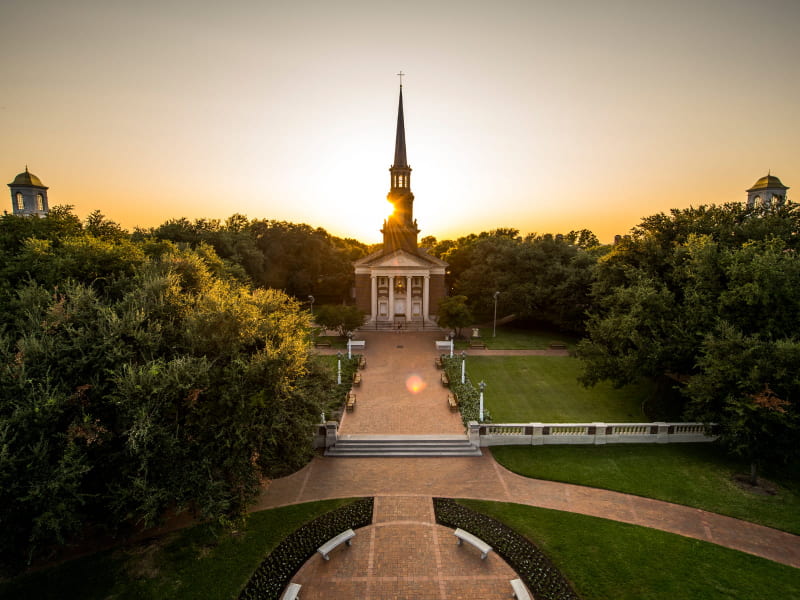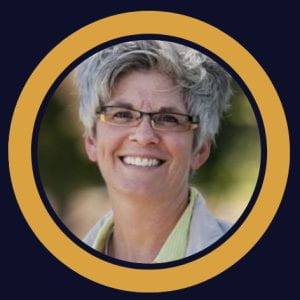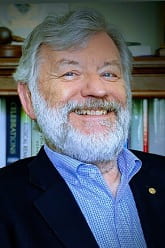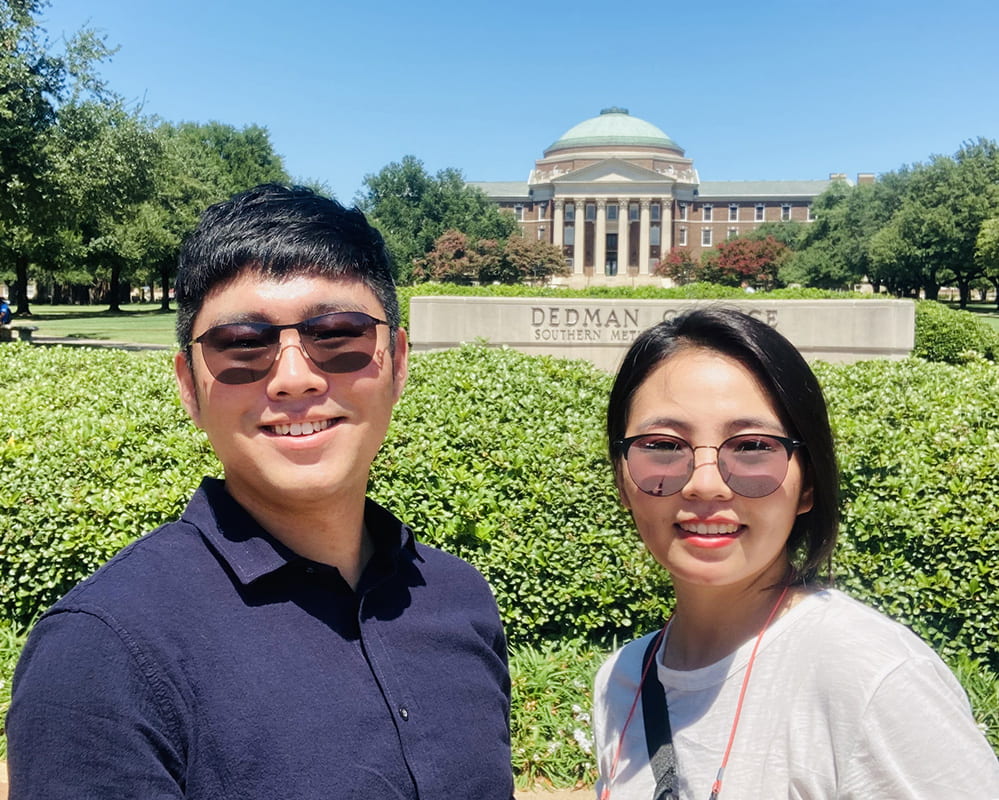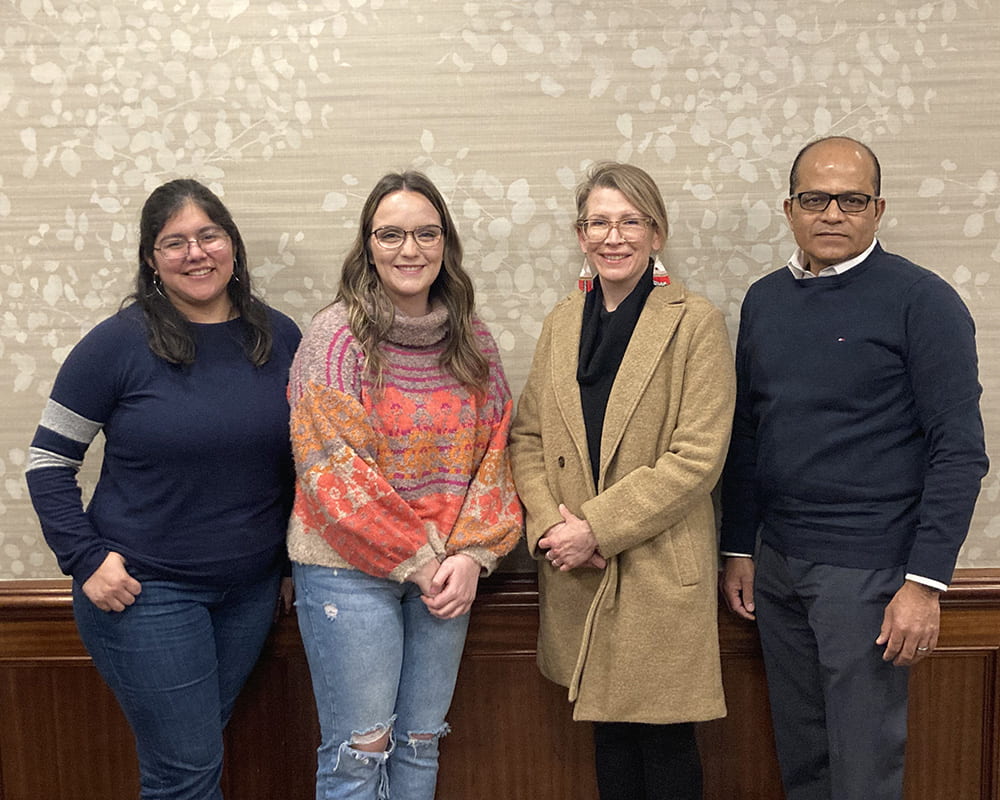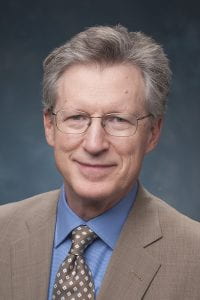Innovation Award for Rev. Michael Gienger
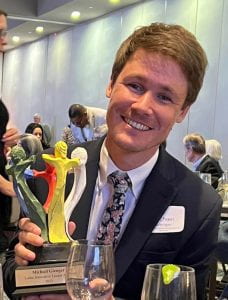 The Rev. Michael Gienger (M.Div. ’17) was a recipient of a Tom Locke Innovation Leader award at a meeting of Texas Methodist Foundation board in April.
The Rev. Michael Gienger (M.Div. ’17) was a recipient of a Tom Locke Innovation Leader award at a meeting of Texas Methodist Foundation board in April.
“Michael’s incredible ministry and the unfolding story of Central United Methodist church were beautifully highlighted in an amazing video presentation,” said Bishop Cynthia Fierro Harvey in a Facebook post.
Gienger is an ordained elder in the Texas Annual Conference of The United Methodist Church and has been serving as co-pastor of Central United Methodist Church in Galveston, Texas, since 2014. Central is a “hybrid church plant/revitalization that is making space for hopeful skeptics and the spiritually homeless through a generous orthodoxy and focus on justice ministries,” according to the Texas conference website. During his tenure, Central has transformed from a dying congregation to a thriving community. In addition to re-planting the church itself, Michael has been able to establish smaller “new faith communities” within the larger Central structure, including the Couch Surfers — a weekly surfing group.
Fred Smith Named Regional Director
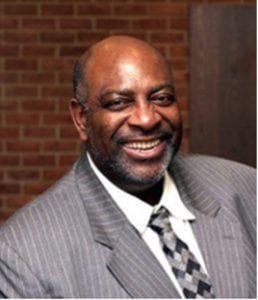 Longtime theological educator and public theologian Rev. Dr. Fred D. Smith Jr. (M.Div. ’84) has been named as Fletcher Seminary’s Houston Regional Director. Under his leadership, Fletcher Seminary will develop innovative partnerships in the Houston metro region. He will also serve as the local face of Fletcher Seminary to churches and prospective students.
Longtime theological educator and public theologian Rev. Dr. Fred D. Smith Jr. (M.Div. ’84) has been named as Fletcher Seminary’s Houston Regional Director. Under his leadership, Fletcher Seminary will develop innovative partnerships in the Houston metro region. He will also serve as the local face of Fletcher Seminary to churches and prospective students.
“Dr. Smith’s stature and caliber as a pastor, educator, and theologian will prove invaluable for Fletcher Seminary as we build new and creative partnerships in Houston and beyond,” said Fletcher President Dr. Don Williford. “Dr. Smith’s experience in education and work around health and faith will also expose Fletcher students to the kind of real-life training that is at the core of our approach to theological education.”
Smith has more than 30 years of training and experience as an educator, strategist, facilitator, and innovator in public theology, especially in the field of faith and health. Previously, he helped launch and establish the Center for Leadership in Public Theology at Houston Graduate School of Theology. As Faith and Health Consultant and Senior Scholar for Methodist Le Bonheur Healthcare System, he participated in the development of the Memphis Model.
Smith retired as Professor of Urban Ministry and Associate Director of the Practice of Ministry and Mission at Wesley Theological Seminary in Washington, D.C., where he developed and taught masters and doctoral level courses in Urban Ministry, Faith and Health, Black Church Studies, Practical Theology and Children and Poverty. He is also a retired United Methodist elder from the Western Pennsylvania Conference, where he was pastor of Fellowship United Methodist Church. Read the press release announcement here.
Obituary: Anthony Clay Cecil Jr.
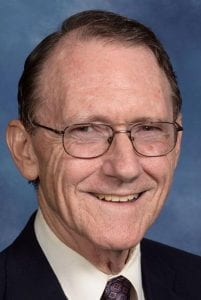 Dr. Anthony Clay Cecil Jr. (Th.M. ’67) passed away on February 27 in Longview, Texas, after a brief illness. Services took place March 25, at First United Methodist Church in Nacogdoches, Texas.
Dr. Anthony Clay Cecil Jr. (Th.M. ’67) passed away on February 27 in Longview, Texas, after a brief illness. Services took place March 25, at First United Methodist Church in Nacogdoches, Texas.
Cecil earned a Bachelor of Arts degree from Southwestern University, a divinity degree from Perkins, and a Ph.D. from Yale University. He was a third-generation Methodist minister. In 2009, he retired after serving 37 years as an ordained minister of The United Methodist Church and a member of the Texas Annual Conference. His appointments included churches in Houston, Keltys, Beaumont, Baytown, Centerville and Texarkana.
Memorials may be made to First United Methodist Church, 201 E. Hospital St., Nacogdoches, TX 75961. Read his obituary here.
Obituary: The Rev. Thomas Neufer Emswiler
 The Rev. Thomas Neufer Emswiler, 81, (Th.M. ’66) died February 21 at Carle Foundation Hospital in Urbana, Ill., surrounded by family. After earning a B.A. from Emporia State University, he graduated from Perkins. He also received an M.A. in a joint program between Northwestern and the Garrett Evangelical Theological Seminary, then began serving at a United Methodist Church in Lawrence, Kan.
The Rev. Thomas Neufer Emswiler, 81, (Th.M. ’66) died February 21 at Carle Foundation Hospital in Urbana, Ill., surrounded by family. After earning a B.A. from Emporia State University, he graduated from Perkins. He also received an M.A. in a joint program between Northwestern and the Garrett Evangelical Theological Seminary, then began serving at a United Methodist Church in Lawrence, Kan.
Along with his wife, Sharon Neufer, he served as minister at Trinity UMC and Haskell Indian Institute in Lawrence, First UMC in Wichita, First UMC in Rock Island, Wesley UMC in Urbana and at Wesley Foundation campus ministries at ISU and UIUC. Tom also served at Rochester UMC in Rochester. The couple retired on the same day in 2003. Tom wrote many books and also co-wrote books on inclusivity in worship with Sharon. He was a lifelong lover of classical music and loved playing the piano.
A memorial service and celebration will take place at a later date. Read his obituary here.
Obituary: James McLean
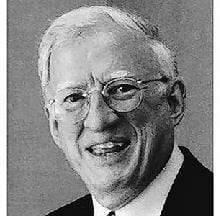 James Albert “Jimbo” McLean earned a B.A. in Education at University of Louisiana at Lafayette in 1950 and a Master of Theology at Perkins in 1953. After serving in several appointments in the Louisiana Conference of The United Methodist Church, he entered graduate school, earning a Master of Fine Arts degree from Tulane University in 1961. McLean joined the art faculty of LaGrange College (Georgia) in 1963 and was named chairperson of the department his second year. In 1966, he joined the faculty of the Georgia State University School of Art and Design, where he served as printmaking instructor until his retirement in 1994. His works are featured in the collections of several major museums including the High Museum, the Brooklyn Museum, the Mint Museum and the Seattle Museum. He also illustrated more than 14 books, in collaboration with Richard Lederer. He was a member of the Dunwoody United Methodist Church’s Performing Arts program, appearing in such plays as Midsummer Night’s Dream, You Can’t Take It With You and others. Read his obituary here.
James Albert “Jimbo” McLean earned a B.A. in Education at University of Louisiana at Lafayette in 1950 and a Master of Theology at Perkins in 1953. After serving in several appointments in the Louisiana Conference of The United Methodist Church, he entered graduate school, earning a Master of Fine Arts degree from Tulane University in 1961. McLean joined the art faculty of LaGrange College (Georgia) in 1963 and was named chairperson of the department his second year. In 1966, he joined the faculty of the Georgia State University School of Art and Design, where he served as printmaking instructor until his retirement in 1994. His works are featured in the collections of several major museums including the High Museum, the Brooklyn Museum, the Mint Museum and the Seattle Museum. He also illustrated more than 14 books, in collaboration with Richard Lederer. He was a member of the Dunwoody United Methodist Church’s Performing Arts program, appearing in such plays as Midsummer Night’s Dream, You Can’t Take It With You and others. Read his obituary here.
Obituary: The Rev. Pablo Mayorga-Nestler
The Rev. Pablo Alfredo Mayorga-Nestler (M.Div. ’86) met his wife Diana Thomas at Perkins. After ordination in 1987, Pablo’s first call was to St. Matthews Lutheran Church in Bethlehem, Pennsylvania, to begin a new Hispanic ministry. His next call was to Zion Hungarian Lutheran Church, also in Bethlehem. This was followed by a call, at age 73, to Abiding Savior Lutheran Church in Florida. Retirement did not sit well with Mayorga-Nestler, who began yet another career as a chaplain for Vitas Hospice. Finally accepting retirement at age 81, he moved to Round Rock, Texas, to be near family. There, he taught ESL and led Bible studies at Hearthstone and Trinity Care Centers for several years. Read his obituary here.
Obituary: The Rev. Barbara West
 The Rev. Barbara Field West, 86, (Th.M. ’72) died February 26 at the Seabury Retirement community in Bloomfield, Conn. She attended Colby College in Waterville, Maine, graduating in 1958 as a Phi Beta Kappa and Summa Cum Laude as a Biology major. After working in the Harvard School of Public Health in the search for a polio vaccine, she relocated to Dallas in 1966 and graduated from Perkins in 1972. She was ordained as a deacon of the Episcopal Diocese of Dallas in 1975, one of the first women to do so. She worked as a Chaplain at Parkland Hospital and served the Episcopal parish of St. Johns in Dallas. Her family returned to Connecticut in 1977, where she served the congregation of St. Mary’s in Manchester. In 1980 she was ordained to the priesthood at St. James Episcopal Church, Glastonbury, Conn., again one of the first women to do so. She ministered to the parish of St. James for several years. She ended her career by serving with the Greater Hartford Regional Ministry, composed of four church congregations in central Connecticut. A memorial service was held at St. James Church in Glastonbury on March 4. Donations in her memory may be made to the Seabury Charitable Foundation of Bloomfield CT, 200 Seabury Drive, Bloomfield, CT 06002, or online at seaburylife.org. Read her obituary here.
The Rev. Barbara Field West, 86, (Th.M. ’72) died February 26 at the Seabury Retirement community in Bloomfield, Conn. She attended Colby College in Waterville, Maine, graduating in 1958 as a Phi Beta Kappa and Summa Cum Laude as a Biology major. After working in the Harvard School of Public Health in the search for a polio vaccine, she relocated to Dallas in 1966 and graduated from Perkins in 1972. She was ordained as a deacon of the Episcopal Diocese of Dallas in 1975, one of the first women to do so. She worked as a Chaplain at Parkland Hospital and served the Episcopal parish of St. Johns in Dallas. Her family returned to Connecticut in 1977, where she served the congregation of St. Mary’s in Manchester. In 1980 she was ordained to the priesthood at St. James Episcopal Church, Glastonbury, Conn., again one of the first women to do so. She ministered to the parish of St. James for several years. She ended her career by serving with the Greater Hartford Regional Ministry, composed of four church congregations in central Connecticut. A memorial service was held at St. James Church in Glastonbury on March 4. Donations in her memory may be made to the Seabury Charitable Foundation of Bloomfield CT, 200 Seabury Drive, Bloomfield, CT 06002, or online at seaburylife.org. Read her obituary here.
